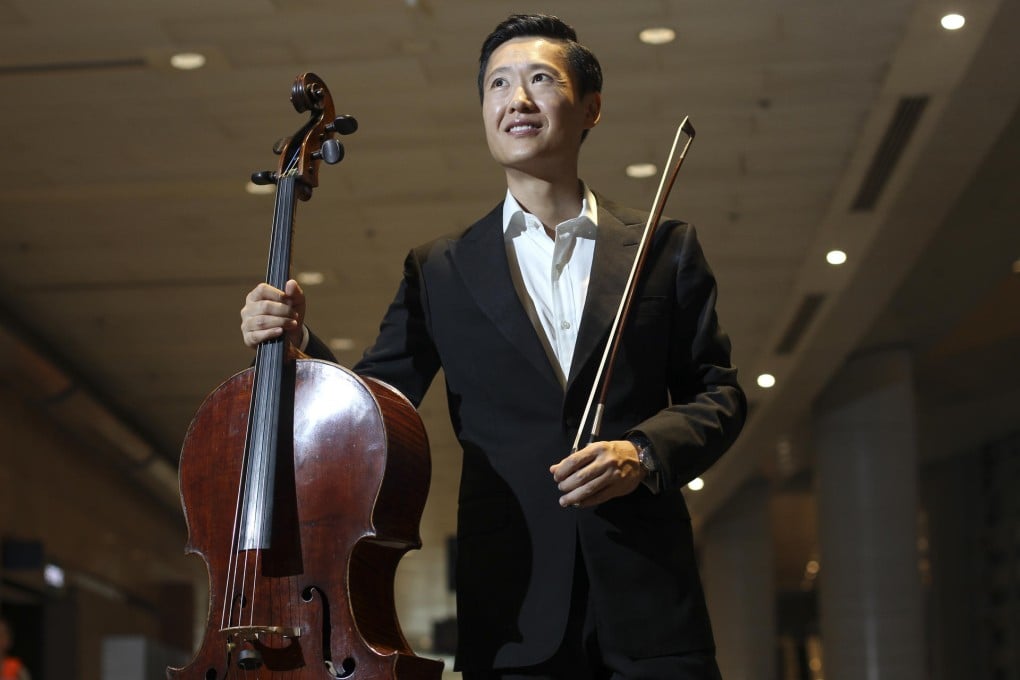My life: Trey Lee Chui-yee
The Hong Kong-born cellist tells Oliver Chou how he flirted with careers in banking and archaeology before rediscovering his first love, music

K I grew up in a musical family. My mother studied piano at the Central Conservatory (of Music) in Beijing. Some of her classmates are now really famous, including pianists Yin Chengzong and Liu Shikun. My father was in the shipping business, but my mother was in charge at home. She believed piano skills were fundamental, so her three children, my two sisters and I, started on the piano very young. While my older sister continued with it, my younger sister shifted to the violin, and I to the cello.
When I was eight years old I left Hong Kong for Toronto - my sisters had already gone to the Juilliard School, in New York. I later joined them and attended the Juilliard Pre-College. That was in the 1980s. A lot of people later emigrated from Hong Kong, but we were ahead of that and we did it for music education. Life at Juilliard was very competitive. Though it was once a week, we sacrificed our Saturdays for all-day, intensive training, including orchestra, chamber music, theory and private lessons. There were some crazy people there. I remember one girl from London who flew in every Saturday. There were also future stars, such as violinist Midori. She was already famous and they made her play the viola in the school orchestra. But I didn't look up to her as a role model.
After seven years at Juilliard, I concluded that I didn't want to be a musician. In retrospect, I feel it's like a factory producing musicians to win competitions or the next prodigy to promote. I liked my friends there, but not the atmosphere, which I found depressing; people practised all day long and had no life. I was like an old nerd with the cello and did no breakdancing or moonwalking like other high school students in those days. Classical music was deemed a social death sentence, and that made me feel like a loser. That's why I didn't go into music after Juilliard. Instead, I wanted to be a banker. Wall Street bankers could be seen as one inspiration (for that dream), but the idea could be traced back much further. When I was really young, I had wanted to be a president of some sort, signing out my sisters' bus tickets as cheques.
I followed my banking dream and studied economics at Harvard University. There, I noticed kindred spirits among the students; we were all nerds in our own way. Few played the cello or went to Juilliard but they knew about classical music and admired it. The core class on music appreciation really opened my eyes. Professor Robert Levin touched on stories about music I had never heard of, although I knew the repertoire probably better than any of the 400 students in the class. But I was learning just as much as everybody else. It was a mental breakthrough for me. For the first time in my life, I heard music that was moving and that made me want to hear more and even play more.
I also took an introduction to archaeology, which took me to France and Israel for digs. I unearthed a Roman coin in Israel. The workers said I could just take it but I dared not and threw it back into the pit. Were I not a musician, archaeology would be the alternative.
Just before I launched my career as a finance consultant in 1995, I played as a student at the Blossom Music Festival in Ohio, a summer gig of the Cleveland Orchestra. At the final concert, in front of 6,000 people, I sat next to principal cellist Stephen Geber, playing Tchaikovsky's Fifth Symphony, conducted by Leonard Slatkin. The rapturous ending led me to think about music as a professional career.